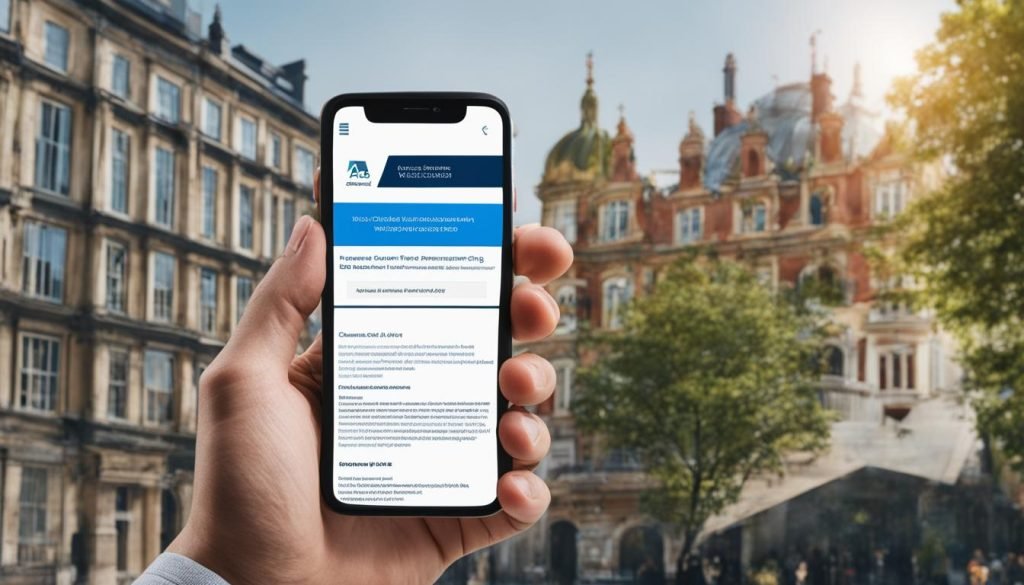Transferring the ownership of a sole proprietorship in Singapore can be a complex process, as it often involves the sale of business assets and relieving the original owner of their business responsibilities. This guide will walk you through the Singapore sole proprietorship transfer requirements, as well as how to transfer ownership of sole proprietorship in Singapore efficiently. By following this step-by-step process, you’ll avoid penalties and ensure a smooth ownership transition.
Key Takeaways
- Understanding the nature of sole proprietorship in Singapore and its relation to personal identity and liability.
- Notifying the Accounting and Corporate Regulatory Authority (ACRA) via BizFile+ using SingPass or CorpPass within 14 days of the ownership change.
- Comprehending the tax implications of a sole proprietorship transfer, including capital gains and fixed assets considerations.
- Considering the benefits of transitioning your sole proprietorship to a private limited company in Singapore.
- Evaluating the strategic advantages and liability differences between a sole proprietorship and a private limited company.
Understanding Sole Proprietorship in Singapore

In Singapore, a sole proprietorship is not considered a separate legal entity. As a result, the owner is personally responsible for all business liabilities. This means that any debts incurred by the business can directly affect the owner’s personal finances. It is essential to understand the responsibilities that come with owning a sole proprietorship and the singapore sole proprietorship transfer requirements to ensure a smooth transaction when transferring ownership.
Any natural person who is at least 18 years old or a registered company can own a sole proprietorship in Singapore. The business must have a minimum of one manager who is a resident of the country. In addition, the manager ensures that the company complies with all the necessary regulations and requirements.
One crucial aspect of setting up a sole proprietorship in Singapore is having a registered local address. This address can be a residential one, provided that approval is obtained through the Home Office Scheme if necessary. The business address should be valid and accessible for official communication.
It is crucial for entrepreneurs to understand the responsibility and liability associated with a sole proprietorship in Singapore to effectively manage and protect their personal assets.
When it comes to the sole proprietorship deregistration process singapore, it is essential to be familiar with the necessary steps and requirements. A sole proprietorship is usually deregistered when the owner decides to close the business or transfer ownership to another individual or company. This process entails notifying relevant authorities and settling outstanding liabilities tied to the business.
When transferring ownership of a sole proprietorship in Singapore, the following requirements are essential:
- Ensuring that the new owner meets the eligibility criteria for owning a sole proprietorship;
- Preparing and signing a sale agreement between the current and new owner;
- Settling outstanding liabilities, such as taxes and debts, from the current owner;
- Registering the change in ownership with the Accounting and Corporate Regulatory Authority (ACRA) within 14 days of the transaction;
- Notifying relevant government agencies, such as the Inland Revenue Authority of Singapore (IRAS) and Central Provident Fund (CPF) board, regarding the change in ownership.
In conclusion, understanding the responsibilities and requirements associated with a sole proprietorship in Singapore is crucial for entrepreneurs planning to transfer business ownership or close their business. Familiarizing oneself with the deregistration process and requirements can help ensure a seamless transition and protect oneself from unnecessary liabilities.
Notifying ACRA: The First Step in Business Transfer
To initiate the transfer of sole proprietorship ownership in Singapore, it is crucial that the original owner (transferor) must notify ACRA (Accounting and Corporate Regulatory Authority) within 14 days from the date of the ownership change. This prompt notification is necessary to avoid penalties associated with late declarations. Reporting the transfer of business ownership in Singapore involves using an online portal called BizFile+ for seamless updates and notifications.

Timely Updates to Avoid Penalties
As a business owner, notifying ACRA within the designated time frame is essential, as failure to do so may result in penalties and other consequences. By keeping track of crucial deadlines and taking the necessary steps to transfer sole proprietorship ownership in Singapore promptly, the transferor can prevent avoidable issues.
Remember: Notify ACRA within 14 days from the date of the ownership change to prevent penalties.
Using BizFile+ for Seamless Notifications
BizFile+ is the online platform used to update ACRA on any changes in business ownership. This user-friendly portal requires authentication with SingPass or CorpPass to ensure secure access. By using BizFile+ for business transfer, the process of lodging the transfer of sole proprietorship with ACRA becomes efficient and convenient.
- Easy to navigate online portal for business updates
- Requires SingPass or CorpPass for secure authentication
- Ensures timely notifications and updates to ACRA
- Makes the transfer of ownership process more organized and efficient
In conclusion, the first and most important step in transferring sole proprietorship ownership in Singapore is notifying ACRA of the change. Timely notification through BizFile+ not only helps avoid penalties but also streamlines the overall process, paving the way for smooth business ownership transfer.
Comprehending the Tax Implications of a Transfer

When transferring a sole proprietorship transfer of assets in Singapore, it is essential to understand the tax implications involved. Both the former and the new owners have tax responsibilities concerning the sale and purchase of business assets. In this section, we will explore the tax implications for new and former owners, as well as the capital gains and fixed assets sale tax considerations.
Tax Responsibilities for New and Former Owners
During the transfer of a sole proprietorship, both the former and the new owners must consider the tax obligations related to each party. Profits from sole proprietorship are taxed as self-employed income based on the period of ownership. The former owner is responsible for any balancing allowance or charge on the sale of fixed assets in their tax return, whereas the new owner will be taxed on their self-employed income once they assume ownership.
It is crucial for both the former and the new owners to comprehend their tax responsibilities during a sole proprietorship transfer.
Capital Gains and Fixed Assets Considerations
Specific considerations must be taken into account when dealing with capital gains and fixed assets during a sole proprietorship transfer in Singapore. While capital gains from the sale of a business are not taxable in Singapore, the sale of fixed assets can impact the former owner’s tax return.
When the sale involves fixed assets, the former owner must compute a balancing allowance or balancing charge on their tax return. On the other hand, the new owner is eligible to claim capital allowances on the acquisition of these fixed assets.
- Understand and comply with all tax responsibilities during the transfer.
- Consider the tax implications related to capital gains and the sale of fixed assets.
- Ensure that both the new and former owners are aware of their respective tax responsibilities.
In conclusion, transferring a sole proprietorship in Singapore comes with various tax implications for both the former and the new owners. Understanding the transfer of sole proprietorship tax implications, capital gains, and fixed asset sale tax considerations can help ensure a smoother transfer process and prevent any unexpected issues from arising.
Expanding Your Business: Transitioning to a Private Limited Company
As an entrepreneur in Singapore, you may reach a point in your business journey where converting sole proprietorship to private limited company is the next logical step. This transition stage is ideal when you are focused on expanding your business in Singapore while minimizing risks associated with a sole proprietorship.

Converting your sole proprietorship to a private limited company offers several benefits, including:
- Limited liability protection
- Corporate tax incentives
- Ease in raising capital
- Perpetual succession
- Enhancement of public perception
- Better options to attract investors and quality talent
A private limited company serves as a separate legal entity and hence, the shareholders’ personal assets are protected from company liabilities. This is a significant advantage when expanding business operations and managing the associated risks.
Moreover, a private limited company enjoys corporate tax incentives and can take advantage of Singapore’s extensive network of Double Taxation Avoidance Agreements (DTAAs). The country’s competitive corporate tax rates, exemptions, and rebates benefit businesses and help attract investors.
Raising capital becomes relatively easier when transitioning from a sole proprietorship to a private limited company, as it can issue shares to prospective investors. This access to additional funding provides an impetus for businesses to scale up efficiently.
On the talent recruitment front, a private limited company holds a more prestigious image and offers a professional working environment, which helps attract experienced and skilled professionals, ultimately enhancing the company’s growth prospects.
In conclusion, transitioning from sole proprietorship to a private limited company in Singapore is a strategic move towards the successful expansion of your business. The benefits of limited liability protection, corporate tax incentives, ease in raising capital, perpetual succession, enhanced public perception, and improved talent acquisition opportunities make this transition a viable option to propel your business forward.
Sole Proprietorship vs Private Limited: Weighing Your Options
Entrepreneurs in Singapore often face the decision of choosing between a sole proprietorship and a private limited company as their business structure. A significant factor to consider is the legal entity distinction, with sole proprietorship bearing unlimited personal liability for the business owner, while a private limited company offers limited liability protection to shareholders.
One of the strategic advantages of a private limited company is its favorable corporate tax rates and exemptions. In contrast, sole proprietorships are taxed as self-employed income, which may result in higher tax obligations. Additionally, private limited companies enjoy perpetual succession, ensuring continuity of the business despite changes in shareholders or management, whereas sole proprietorships cease upon the owner’s death or incapacity.
Transitioning from a sole proprietorship to a private limited company in Singapore has several benefits of incorporation, such as increased credibility, better access to funding, and an enhanced ability to attract skilled employees and investors. By carefully evaluating the distinctions between sole proprietorship and private limited liability, business owners can make informed decisions to maximize growth and success in Singapore’s competitive market.
FAQ
What is the process for transferring a sole proprietorship in Singapore?
To transfer a sole proprietorship in Singapore, first, notify the Accounting and Corporate Regulatory Authority (ACRA) within 14 days from the date of the change in ownership using BizFile+ and authenticate the process with SingPass or CorpPass. Both the former and new owners also need to handle their respective tax responsibilities.
How can I ensure timely updates of my sole proprietorship transfer to avoid penalties?
To avoid penalties, it’s important to notify ACRA about the change in ownership within 14 days from the date of the transfer using the BizFile+ online platform, adhering to Singapore’s sole proprietorship transfer requirements.
What are the tax implications involved in the transfer of a sole proprietorship in Singapore?
The transfer of a sole proprietorship in Singapore comes with tax responsibilities for both the former and new owners. The former owner must account for any balancing allowance or charge on the sale of fixed assets, while the new owner is eligible to claim capital allowances on the acquisition of these assets.
How can I transition from a sole proprietorship to a private limited company in Singapore?
If you want to expand your business by transitioning from a sole proprietorship to a private limited company in Singapore, consider the benefits of incorporation such as limited liability protection, corporate tax incentives, ease in raising capital, perpetual succession, improved public perception, and better potential for attracting investors and quality talent.
What are the key differences between a sole proprietorship and a private limited company in Singapore?
The main differences between a sole proprietorship and a private limited company in Singapore involve legal entity distinctions, personal liability, and strategic advantages. A private limited company is a separate legal entity, thus shielding shareholders from personal liability, whereas a sole proprietor faces unlimited personal liability. Furthermore, a private limited company enjoys corporate tax rates, increased credibility, perpetual succession, and limited liability, which can lead to a better business environment for expansion, investments, and recruitment of skilled staff.

